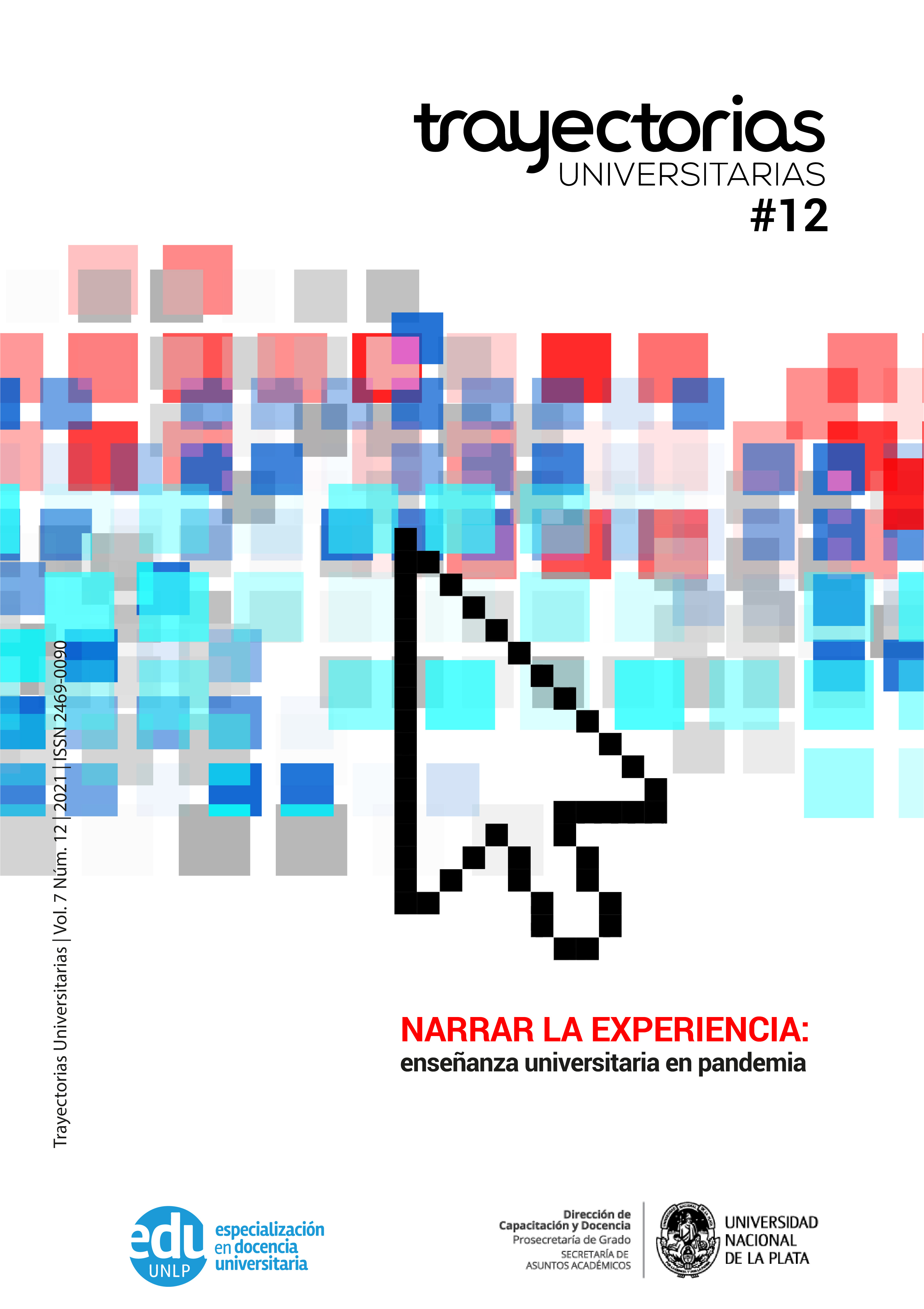Learning to investigate: An approach to the problem in the final work of the Bachelor in Food Science and Technology
DOI:
https://doi.org/10.24215/24690090e062Keywords:
final degree project, trajectories, academic literacy, university graduationAbstract
Most of the programs for student retention are centralized in the early years of the career, and seek to minimize dropouts in the initial training paths. However, the number of students who desert in the last years of their career is also important. Among the reasons for this trend, the delay in the production of the final work can be highlighted.
Although there are few researches focused on the final work of the career, the interest in this topic increases when it is recognized that it generates a high degree of stress not only for students but also for teachers. Besides, if we add the lack of assessment for which this work must be done, the final career work can represent a real obstacle. The aim of the present work is to contribute to the analysis of final work of the career and contribute not only to a systematization of authors, but also to a specific proposal for a curricular review of the Bachelor in Food Science and Technology (career used as an example of analysis).
Downloads
Metrics
References
Arroupe, N. (2015). El desarrollo de trabajos finales: escenarios y relación con el saber en las trayectorias académicas de los estudiantes de grado. Síntesis, (4), 1-22.
Barco, S. (2016). Glosario del seminario de Desarrollo e innovación curricular. Manuscrito no publicado, Universidad Nacional de La Plata, Argentina.
Casco, M. (2007). Prácticas comunicativas del ingresante y afiliación intelectual. En V Encuentro Nacional y II Latinoamericano “La universidad como objeto de investigación”. Facultad de Ciencias Sociales, Universidad Nacional del Centro de la Provincia de Buenos Aires, Tandil, Argentina.
Davini, M. C. (2008). Métodos de Enseñanza. Buenos Aires, Argentina: Santillana.
Díaz Barriga, Á. (2006). La educación en valores: Avatares del currículum formal, oculto y los temas transversales. Revista Electrónica de Investigación Educativa, 8(1), 1-15.
Gascón, Y. (2008). El síndrome de todo menos tesis “TMT” como factor influyente en la labor investigativa. Revista Copérnico, 5(9), 46-57.
Gil Pérez, D. (1983). Tres paradigmas básicos en la enseñanza de las ciencias. Revista de Investigación y Experiencias Didácticas, 1(1), 26-33.
Hernández Zamora, G. (2009). Escritura académica y formación de maestros ¿Por qué no acaban la tesis? Tiempo de educar, 10(19) 11-40.
Patrignani, M. (2019). El acompañamiento pedagógico en el egreso universitario (Tesis de Especialización). Universidad Nacional de La Plata, Argentina.
Pereira, C., y Di Stefano, M. (2007). El taller de escritura en posgrado: Representaciones sociales e interacción entre pares. Revista Signos, 40(64), 405-430.
Pierella, M. P. (2014). El ingreso a la universidad pública: diversificación de la experiencia estudiantil y procesos de afiliación a la vida institucional. Universidades, 65(60),51-62.
Ros, M., Benito, L., Germain L., y Justianovich, S. (2017) El programa de seguimiento de trayectorias estudiantiles: Una experiencia de trabajo colectivo. En M. Ros, L. Benito, L. Germain y S. Justianovich (Eds.), Inclusión, Trayectorias Estudiantiles y Políticas Académicas en la Universidad (pp. 14-24). La Plata, Argentina: Editorial de la Universidad Nacional de La Plata.
Rotstein De Gueller, B., y Soláns, A. P. E. (2014). Los trabajos finales de carrera y sus autores. Estado del arte. En VI Congreso Internacional de Investigación y Práctica Profesional en Psicología XXI Jornadas de Investigación Décimo Encuentro de Investigadores en Psicología del MERCOSUR. Facultad de Psicología-Universidad de Buenos Aires, Argentina.
Santomé, J. T. (1991). El curriculum oculto. Madrid, España: Ediciones Morata.
Downloads
Published
How to Cite
Issue
Section
License
La aceptación de un original por parte de la revista implica la cesión no exclusiva de los derechos patrimoniales de los/as autores/as en favor del editor, quien permite la reutilización, luego de su edición (postprint), bajo una Licencia Creative Commons Atribución-NoComercial-CompartirIgual 4.0 Internacional (CC BY-NC-SA 4.0).
Acorde a estos términos, el material se puede compartir (copiar y redistribuir en cualquier medio o formato) y adaptar (remezclar, transformar y crear a partir del material otra obra), siempre que a) se cite la autoría y la fuente original de su publicación (revista y URL de la obra), b) no se use para fines comerciales y c) se mantengan los mismos términos de la licencia.
La cesión de derechos no exclusivos implica que luego de su edición (postprint) en Trayectorias Universitarias los/as autores/as pueden publicar su trabajo en cualquier idioma, medio y formato; en tales casos, se solicita que se consigne que el material fue publicado originalmente en esta revista.
Tal cesión supone, también, la autorización de los/as autores/as para que el trabajo sea cosechado por SEDICI, el repositorio institucional de la Universidad Nacional de La Plata, y sea difundido en las bases de datos que el equipo editorial considere adecuadas para incrementar la visibilidad de la publicación y de sus autores/as.
Asimismo, la revista incentiva a los/as autores/as para que luego de su publicación en Trayectorias Universitarias depositen sus producciones en otros repositorios institucionales y temáticos, bajo el principio de que ofrecer a la sociedad la producción científica y académica sin restricciones contribuye a un mayor intercambio del conocimiento global.





















